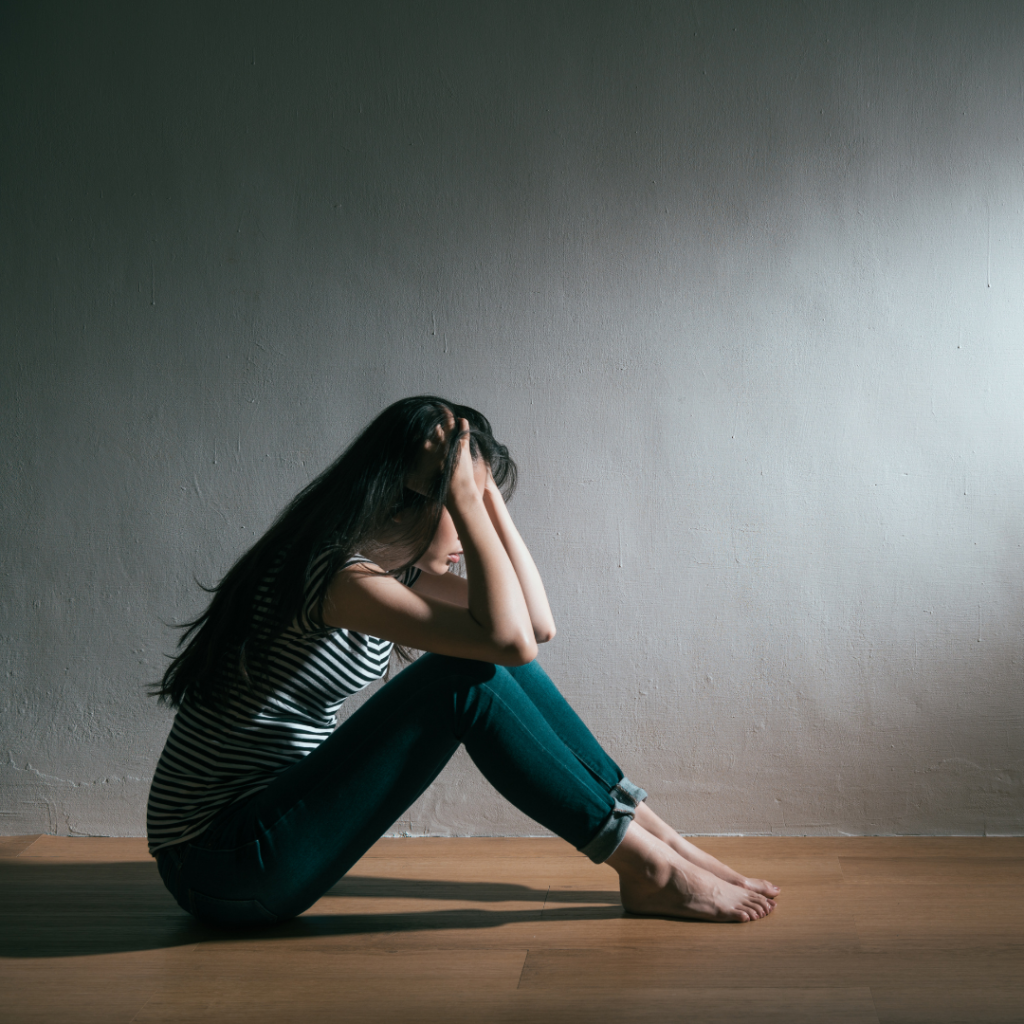Depression
Everyone has times in their lives when they feel sad, fed up or miserable. It is usually for a particular reason and it does not interfere too much with daily life. It does not usually last longer than a week or two. However, if these feelings go on for weeks or months, or become so bad they start to affect every area of your life, you may have depression and need to get help.
People experience different levels of depression in different ways. There are mild, moderate or severe levels of depression. People’s experience of depression is also influenced by their cultural background and by their personal values and beliefs.

If you are depressed, you will probably notice some of the following:
In your mind, you:
- Feel unhappy, miserable, down, depressed – this feeling just won’t go away and can be worse at a particular time of day, often first thing in the morning
- Can’t enjoy anything
- Lose interest in seeing people and lose touch with friends
- Can’t concentrate properly and find it harder to make decisions
- Lose your self-confidence
- Feel guilty and unworthy
- Become pessimistic
- Start to feel hopeless, and perhaps even suicidal.
In your body, you may find that you:
- Feel restless, nervous or agitated
- Feel exhausted and have no energy
- Can’t get to sleep or sleep too much
- Wake early in the morning and/or throughout the night
- Have a headache or stomach upset
- Lose interest in sex
- Can’t eat and lose weight or ‘comfort eat’ more and put on weight.
Other people may notice that you:
- Make mistakes at work or can’t focus
- Seem unusually quiet and withdrawn, or are avoiding people
- Worry about things more than usual
- Low on patience
- Are more irritable than usual
- Are sleeping more or less than usual
- Complain about vague physical problems
- Stop looking after yourself properly – you don’t wash your hair or your clothes
- Stop looking after your home properly – you stop cooking, don’t tidy or forget to change the sheets on your bed.
Most people will not experience all of these, and some people may only be aware of physical symptoms. You may think that you have a physical illness because you feel very tired or have problems with sleep, but physical symptoms like these can be the first sign of depression.
You may not realise how depressed you are, especially if it has come on gradually. Sometimes people try to struggle on and may even start to blame themselves for being lazy or lacking willpower.
It sometimes takes a friend or a partner to persuade you that there really is a problem and suggest that you seek help.
Team Profile

Preeti Sadhu Pendharkar
Mental Health Professional

Dr Shreyas S Pendharkar
Neuropsychiatrist
Blog
Procrastination: Evil Twin of Success
Despite being a ‘’Psychologist’’ i.e. a professional concerned with observing human behavior & modifying its sinful fallacies…I am a serious procrastinator with an amazing ability…
Smart Or Overburdened
I often counsel parents telling them intellect, talent and potential are inborn qualities but, the amount of exposure and independence that a child gets; aid…
Bitter People
There’s no single “name” for them, you call them pakau(sad people), chipku (sticky people), pissu, (suckers) who will suck out happiness and life out of…



